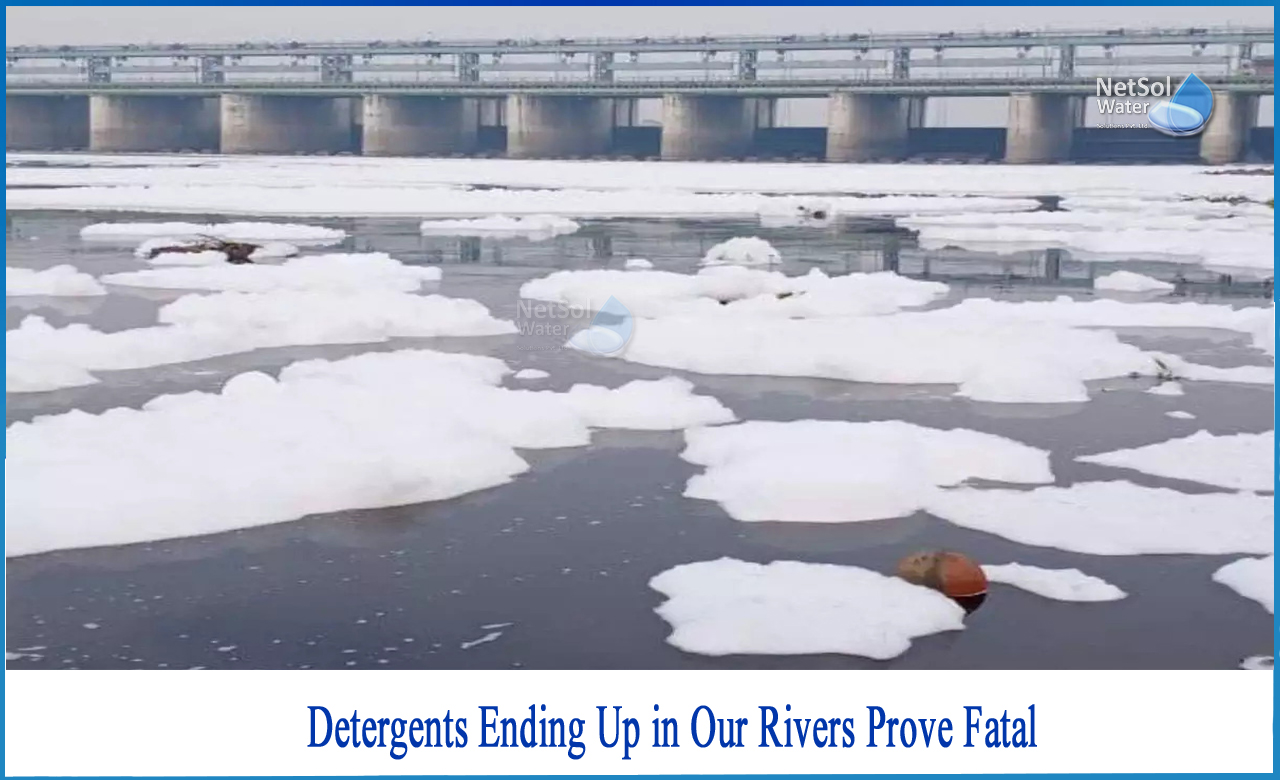How detergent in rivers cause harm?
It's ironic that detergents, which are supposed to clean, end up polluting water bodies with chemicals.
A recent study, 'Dirty Trail: Detergent to Water Bodies,' discovered startling levels of the toxic chemical nonylphenol in detergents as well as river water in India.
Regular laundry detergents are bad for the environment, as most of us are aware. Detergents do not biodegrade completely, contaminating our water supplies, rivers, and oceans with toxic heavy metals such as cadmium and arsenic. Phosphates, a common ingredient in detergents, have been shown in studies to build up in waterways and cause eutrophication — large algal blooms that can deprive fish and other plant life of oxygen.
To be more specific, clothes made of synthetic fabrics — such as nylon, polyester, and rayon, which are all essentially plastic derivatives — are the culprits here!
When synthetic clothes are washed, they emit billions of microplastics — tiny bits of plastic smaller than one millimeter — according to Environmental Science and Technology. These microplastics eventually find their way into the oceans, where they bioaccumulate and move up the food chain.
Nonylphenol exposure through water, soil, and food crops is hazardous!
In natural environmental conditions, nonylphenol ethoxylate degrades to nonylphenol, which enters the ecosystem. It also enters the food chain, where it bio-accumulates and poses significant environmental and health risks. The chemical has been discovered to have a number of reproductive and hormonal effects on those who have been exposed to it. It has been found in human breast milk, blood, and urine, and it has been linked to reproductive and developmental effects in rodents.
The concentration in detergent samples was found to be very high in international corporations' products, despite the fact that they have declared their products to be nonylphenol-free in other countries. This suggests a double standard, given that studies confirm nonylphenol's human health effects, particularly the fact that it may be carcinogenic.
The Bureau of Indian Statistics (BIS) has established phenolic compound standards for drinking water (0.001 mg/L) and surface water (5.0 mg/L).In contrast to other countries, India has prohibited the use of nonylphenol in cosmetic products since 2009, but it still lacks a regulation on its use in surfactants and other consumer products, as well as specific standards for the chemicals in drinking water and surface water.
Conclusion
Detergents can prove fatal, especially, if Nonylphenol is found in high concentrations in all of the detergent samples. Studies show that Nonylphenol was found in high concentrations in all of the river samples.The concentration of nonylphenol in Garh Ganga was found to be 14.76 ppm.The highest level of nonylphenol was found in a water sample from Rajasthan's Bandi River, at 41.27 parts per million (ppm).
How can Netsol Water help?
Netsol Water is a significant water and wastewater treatment firm in India, offering WTP, WWTP, STP, and ETP, Industrial RO, Commercial RO, Water Softeners manufacture, among other services. The company creates equipment and is committed to providing practical solutions that help businesses flourish. We are committed to providing our valued customers with hands-on service, expert counselling, and training. We believe in achieving sustainability and save fresh water resources by re-using wastewater after treatment.
Netsol Water is Greater Noida-based leading water & wastewater treatment plant manufacturer. We are industry's most demanding company based on client review and work quality. We are known as best commercial RO plant manufacturers, industrial RO plant manufacturer, sewage treatment plant manufacturer, Water Softener Plant Manufacturers and effluent treatment plant manufacturers. Apart from this 24x7 customer support is our USP. Call on +91-9650608473, or write us at enquiry@netsolwater.com for any support, inquiry or product-purchase related query.



